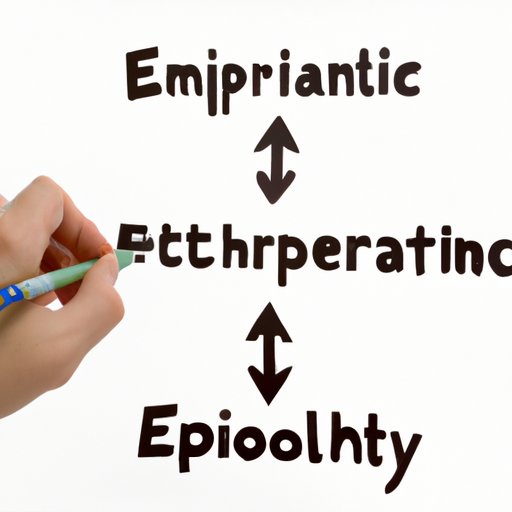Introduction
Making decisions is a part of everyday life. From deciding what to wear in the morning to choosing what job to take, each decision we make has its own unique set of implications. When it comes to making decisions that involve other people or organizations, however, it is important to consider the ethical implications of our choices. Ethical decision making involves assessing a situation, considering the potential consequences of each option, and ultimately choosing the most ethical course of action.
Exploring the Principles of Ethical Decision Making
At the heart of ethical decision making are ethical principles. These principles can be defined as “moral standards that guide behavior” 1. Some of the most common ethical principles include respect for autonomy, beneficence, non-maleficence, justice, and truthfulness. When faced with an ethical dilemma, it is important to consider these principles and determine which one is most relevant to the situation at hand.
In addition to understanding the ethical principles involved, it is also important to identify any potential ethical dilemmas that may arise from the decision. An ethical dilemma is a situation where two or more courses of action are morally permissible, but not both at the same time 2. Determining the potential consequences of each option is key to making an informed decision. It is also important to recognize that different cultures may view ethical issues differently and that this should be taken into account when making a decision.

Examining the Process of Ethical Decision Making
Once the ethical principles and potential dilemmas have been identified, the next step is to examine the process of ethical decision making. This involves assessing the situation and identifying possible options, analyzing the impact of each option on all parties involved, weighing the pros and cons of each option, and finally deciding which option is the most ethical. It is important to remember that there is no one-size-fits-all approach to ethical decision making and that each situation must be considered on its own merits.

Analyzing Different Approaches to Ethical Decision Making
When it comes to making ethical decisions, there are several different approaches that can be taken. Utilitarianism is an approach that focuses on maximizing the overall benefit of a decision. This means that the decision should produce the greatest amount of good for the greatest number of people. Deontology is an approach that focuses on following moral rules, regardless of the outcome. Finally, virtue ethics is an approach that focuses on developing character traits, such as honesty and integrity, which will enable one to make ethical decisions.
Understanding the Impact of Ethical Decisions on Society
It is important to understand the impact that ethical decisions can have on society as a whole. Ethical decisions can affect not only those directly involved, but also the broader community. Additionally, it is important to consider the long-term consequences of ethical decisions, as they can have far-reaching implications. For example, a company’s decision to pollute the environment may have a negative effect not only on the local area, but also on future generations.

Investigating How Technology Influences Ethical Decision Making
Technology has become an integral part of ethical decision making. From artificial intelligence to predictive analytics, technology can be used to help identify potential ethical dilemmas and assess the potential consequences of each option. However, it is important to remember that technology is not a panacea and that it comes with its own set of risks. For example, relying too heavily on automated systems may result in decisions being made without proper consideration of ethical principles.
Conclusion
Making ethical decisions is an essential part of life. It involves assessing a situation, considering the potential consequences of each option, and ultimately choosing the most ethical course of action. There are several different approaches to ethical decision making, such as utilitarianism, deontology, and virtue ethics, and it is important to understand the impact that ethical decisions can have on society as a whole. Finally, technology can play a role in helping to identify potential ethical dilemmas and assess the potential consequences of each option, but it is important to remember that it comes with its own set of risks.
In conclusion, ethical decision making is an important skill that requires careful consideration and deliberation. Understanding the principles and process of ethical decision making, as well as the potential impact on society, is essential for making informed decisions. Further research is needed to explore how technology can be used to support ethical decision making, while minimizing potential risks.
As individuals and organizations, we all have a responsibility to make ethical decisions that are in the best interests of everyone involved. Taking the time to consider the ethical implications of your decisions is an important step towards creating a more just and equitable world.
(Note: Is this article not meeting your expectations? Do you have knowledge or insights to share? Unlock new opportunities and expand your reach by joining our authors team. Click Registration to join us and share your expertise with our readers.)
